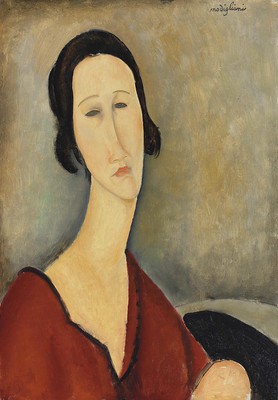No products in the cart.
September 20, 2021
Art is my way of understanding the world. It is a social process, a human interaction – with society, with myself. Creating art affects how I see the world and gives me the opportunity to express who I am.
What I experience, people I meet – especially those whose lives I am allowed to participate in – music, nature, the salty smell of the sea, a fleeting laugh, the sound of a voice… but also losses, fears, worries, all flow into my art.
Of course, this also includes meeting and engaging with great artists and great art. From the great masters to contemporary art. Here I would like to name 5 artists who impress me again every day.
Important Italian painter of the early Baroque and founder of the Chiaroscuro technique (light-dark painting).
“I’m always learning.”
– Caravaggio
Caravaggio staged his paintings like plays. His unique use of light and color created contrast and tension.
The illuminated scenes against a dark background, the plastic motifs, the richness of detail – I can never escape Caravaggio’s effect. The protagonists of his painted stories could be set in motion at any moment.
His color palette was rather earthy. In addition to black and white, shades of green and brown often dominate his compositions.

Schweinemarkt in Haarlem | Pig market in Haarlem - Kunsthalle Mannheim
An outstanding representative of German Impressionism.
“Impressionism is not – as one must hear or read every day – a direction, but a worldview: everyone can be blessed in it according to his talent.”
– Max Liebermann
Where Caravaggio often uses light like a stage spotlight, Liebermann’s light is natural, alive. The light, breaking through foliage and spilling onto the paths, is simply ravishing!
For me, it has an almost shimmering serenity that immediately connects with the smell of sunlit grass and birdsong.
And this despite the fact that his motifs are typically socially and temporally critical, a depiction of poverty and hard work.
Austrian expressionist.
“Talent? Yes, far too much of it.”
– Gustav Klimt to Egon Schiele’s question “Do I have talent?”
Egon Schiele’s motifs are often naked, twisted bodies, raw sexuality. He does not embellish anything, on the contrary. His color palette is almost dirty, the materials rough, large-pored paper, and unprimed canvases.




Mutter mit zwei Kindern II | Mother with two children II - Leopold Museum, Vienna
All this creates a high urgency, unsparing and of bewildering intensity.
I am also fascinated by Schiele’s talent for omission, his treatment of space. Whole parts of the paper, of the canvas are left blank, others are transparently colored or punctuated by lines, while others appear opaque and solid, almost representational.
In Schiele’s works, including many self-portraits, I am always struck by how intensively the artist dealt with his inner life.




Die Erschießung der Aufständischen | The shooting of the insurgents – Prado, Madrid
The precursor of realism
“Nobody knows himself.”
– Francesco de Goya
Goya was already successful as a young artist. Despite his incorruptible eye, with which – even as a Spanish court painter – he depicts the bodies and facial features of his monarchs unadorned, many of his early works are richly colored and, for all the subtle ambiguity on the surface, often light-hearted and playful.
In the turmoil of the Napoleonic occupation of Spain, Goya turns this unsparing gaze on the horrors of war. In 1792 he fell seriously ill and became deaf. From then on, his art darkens.
His paintings become nightmarish and gloomy. The unleashed imagination and the creative power of Goya’s art are overwhelming and frightening at the same time.
Italian Expressionist.
“If I know your soul, I will paint your eyes.”
– Amedeo Modigliani
Modigliani, the underdog of modernism, devoted his works primarily to the female nude and the portrait.
He defied the common expectations of his time with regard to art and developed his very own, concise style.




Madam Hanka Zborowska – Private collection
It is characterized by overlong necks, blinding, almond-shaped eyes, simplified outlines, and extreme postures that give his works a peculiar, hypnotic pull. I am enchanted by the poetic melancholy that his paintings radiate.
I’m happy if you tell me about yourself in the comments. What influences you, what inspires you?
Join the newsletter now
and not miss a thing
Get exclusive insights into my creative processes, learn the stories behind my artwork
and receive invitations to my exhibitions and events.
To say thank you, I'll give you 10% off your first purchase.